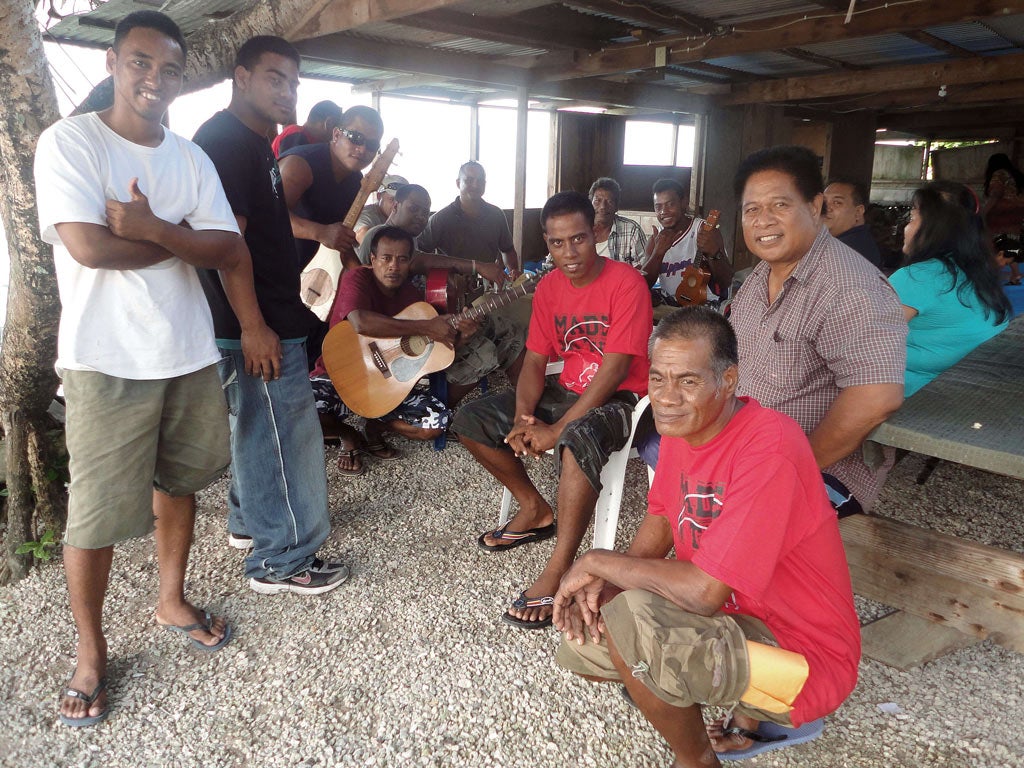Lost fishermen reach land – and solve a mystery
Pair drift in the Pacific for 33 days, then discover relatives on a remote atoll

Your support helps us to tell the story
From reproductive rights to climate change to Big Tech, The Independent is on the ground when the story is developing. Whether it's investigating the financials of Elon Musk's pro-Trump PAC or producing our latest documentary, 'The A Word', which shines a light on the American women fighting for reproductive rights, we know how important it is to parse out the facts from the messaging.
At such a critical moment in US history, we need reporters on the ground. Your donation allows us to keep sending journalists to speak to both sides of the story.
The Independent is trusted by Americans across the entire political spectrum. And unlike many other quality news outlets, we choose not to lock Americans out of our reporting and analysis with paywalls. We believe quality journalism should be available to everyone, paid for by those who can afford it.
Your support makes all the difference.After drifting for 33 days in the South Pacific, Uein Buranibwe and Temaei Tontaake, two fishermen from Kiribati, were overjoyed to make landfall on a remote atoll in the Marshall Islands. And their joy soon turned to delight when they discovered that the descendants of an uncle of Mr Tontaake, feared drowned at sea in the 1950s, were living on the atoll.
It turned out that the uncle, named Bairo, had ended up on the same atoll, Namdrik, after getting lost during a fishing trip. Stranded 350 miles from Kiribati with no way to return, he married a local woman, had children and became part of the community.
The extraordinary tale was recounted yesterday by Mr Tontaake, 26, after he arrived in Majuro, the capital of the Marshall Islands, with Mr Buranibwe, 53. They landed on Namdrik 17 days ago, but with the local airline's lone aircraft grounded for repairs, they had to wait for a boat to take them to Majuro.
The pair got lost while returning from a night-time fishing trip in Kiribati, a string of atolls formerly known as the Gilbert Islands. Their satellite navigation system had broken down, and they survived on what tuna they could catch, "but sometimes we'd go three or four days with no food", Mr Tontaake told Agence France Presse. With little rainfall, they had to drink salt water.
Meanwhile, the US Coast Guard undertook a search. "We heard the sound of a plane, but we didn't see it," Mr Tontaake said. They also saw fishing boats, but none were close enough.
When they arrived on Namdrik, locals took them to meet the only person who spoke their language. They were astonished to find that she was a descendant of Bairo's, and that they had solved a 60-year-old family mystery. And although the uncle has since died, his story has raised hopes about others who have been lost at sea.
Giff Johnson, editor of the Marshall Islands Journal, said: "I asked these guys, do many people from your island get lost at sea? They said it happens all the time."
Mr Johnson told Radio Australia: "The Marshall Islands hosts Kiribati drifters quite frequently... They get lost in a little tiny boat and somehow they manage to persevere... It's an amazing thing."
The pair, who hope to fly back to Kiribati once the Air Marshall Islands plane is repaired, were weak but in a "reasonable condition" when they washed ashore, according to the US Coast Guard. Mr Johnson said: "That was a pretty pleasant surprise, to drift at sea for 33 days and wind up on an island where you've got family members."
Join our commenting forum
Join thought-provoking conversations, follow other Independent readers and see their replies
Comments